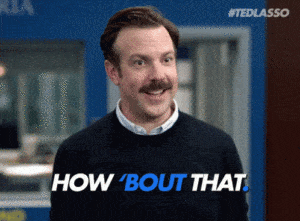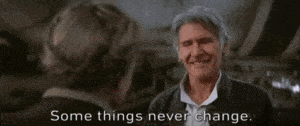There’s an old Chinese proverb called Three Men Make a Tiger and it goes like this: If one person tells you there’s a tiger roaming around your neighborhood, you can assume they’re lying. If two people tell you, you begin to wonder. But if three say it’s true, you’re convinced there’s a tiger in your neighborhood and you run for your life.
This proverb first came about hundreds of years ago but is likely more relevant than ever in the social media age we live in today. People will believe anything if enough people tell them it’s true.

I thought of this recently when I saw an awesome Twitter thread pushing back against the growing sentiment that “nobody wants to work anymore” which is a statement I’ve heard parroted back to me by a lot of people lately.
The thread is comprised of news article snippets of people declaring, “Nobody wants to work anymore,” dating all the way back to 1894. You can go through the entire thread yourself, but here are a few of the examples:
A Brief History of Nobody Wants to Work Anymore 🧵
2022:

2014:

1999:

1952:

Now, if you’re one of the many people who has said in recent months, “Nobody wants to work anymore,” I’m not saying you’re wrong. Finding good workers has been difficult. But this isn’t a new problem. Business owners and managers have always scoffed at the work ethic of the younger generation.
And even with nobody seemingly wanting to work over the past 120+ years, the economy has somehow still managed to grow and advance quite significantly over that time.

Morgan Housel has talked about how a lot of financial media consists of very educated people being shocked when something that’s consistently happened for hundreds of years happens again. Whether that be a bear market, high inflation, a recession, or even people not wanting to work.
For example, in 1932 an Ohio lawyer named Benjamin Roth wrote in his diary:
“People think if more money were printed business would be better. This is a false and vicious theory… I am personally very much concerned with the question of inflation and it seems to me there is a grave possibility it will come unless the government at once balances its budget. With an election coming this seems out of the question.”
A few months later, he wrote:
“There is also considerable discussion about the new science of “technography” which holds that new machinery has replaced many men in industry who will never find a job again.”
You could copy and paste those paragraphs into any current newspaper or finance article and they’d fit right in. Some things never change.
Roth felt the same way. A year later he researched the Depression of 1893 and wrote, “I am again struck by the similarity to conditions today.” The way people responded to market declines and how politicians behaved and how greed and fear controlled investment decisions were the same then as they are now.

Investing and building wealth are long-term games that require patience and consistency over decades.
If there’s a personal finance lesson to be found here it’s not to get too caught up in whatever the financial or economic news of the day is. Especially when it’s an “unprecedented” event that, in fact, does have precedent throughout history.
“People spend too much time on the last 24 hours and not enough time on the last 6,000 years.” – Will Durant
Thanks for reading!


